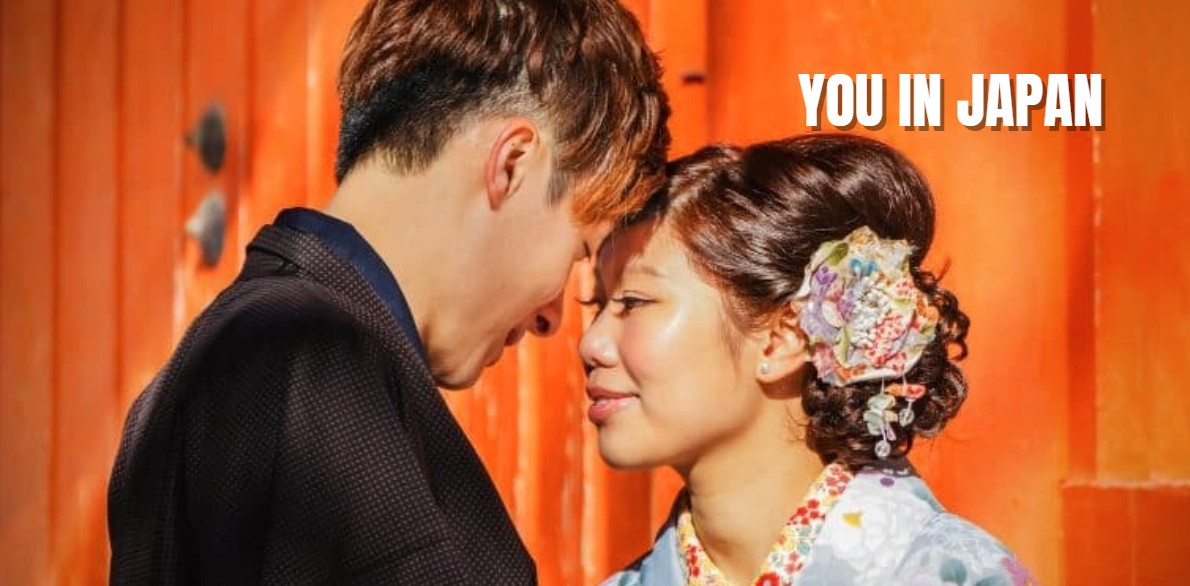You in Japan: Understanding How to Address People in Japanese Culture
Introduction
One of the most intriguing aspects of learning a new language is understanding its subtleties, and Japanese is no exception. If you’re a person living in the USA and exploring Japanese culture or preparing for a trip to Japan, you might be surprised to learn that the word “you” in English doesn’t translate smoothly into Japanese.
In fact, the first rule of using the word “you” in Japanese is—don’t use it! While this might seem confusing at first, mastering the art of indirect speech in Japanese is essential for sounding polite, respectful, and natural.
In this article, we’ll delve into the intricacies of saying “you in Japan,” unpacking why it’s rarely used, how to refer to others respectfully, and how this linguistic peculiarity reflects Japanese culture’s emphasis on hierarchy, politeness, and group harmony.

ALSO READ: Worldstar Rock Paper Scissors: The Viral Phenomenon and Cultural Impact
Why “You” Isn’t Commonly Used in Japanese
The most important thing to understand about the word you in Japanese is that it’s typically avoided in everyday conversation.
In English, “you” is a general term that we use frequently without much thought. But in Japanese, direct forms of address like “you” are often seen as too forward or even rude, especially when you don’t know someone very well or are speaking in formal contexts.
A Culture of Politeness and Hierarchy
The avoidance of “you” stems from Japan’s deeply ingrained cultural values of respect, hierarchy, and maintaining harmony in social interactions. In Japan, status matters greatly—whether it’s age, position at work, or social standing. Directly addressing someone as “you” without using their title or name can come across as blunt and disrespectful.
Instead of saying “you,” people in Japan often use other methods to address others, such as:
- Using the person’s name with the appropriate honorific (like “-san” or “-sensei”).
- Omitting the subject entirely when it’s clear who is being addressed based on context.
- Referring to someone’s role or position (such as “teacher” or “manager”).
ALSO READ: Worldstar Rock Paper Scissors: The Viral Phenomenon and Cultural Impact
The Few Cases Where “You” is Used in Japanese
Although rare, there are words for “you” in Japanese, but they are often avoided for the reasons stated above. Some of the terms you might encounter include:
- Anata (あなた): This is perhaps the closest equivalent to “you” in Japanese. However, using “anata” can sound formal or impersonal and is often reserved for situations where the speaker doesn’t know the other person’s name. Interestingly, “anata” can also be used by women when addressing their husbands, translating to something like “dear” or “honey.”
- Kimi (君): “Kimi” is more casual and is generally used by men when speaking to those of lower status or to close friends. In some cases, it can sound a bit condescending if used improperly, so caution is necessary.
- Omae (お前): This word is even more informal and can sound aggressive or confrontational, often used in anime or movies to depict tough or dominant characters. It’s not something you’d want to use in polite company.

How to Politely Refer to Others Without Using “You in Japan”
Now that we understand why directly saying “you” is often avoided in Japanese, let’s explore how people refer to others in everyday conversations without sounding rude or overly direct. Here are the most common alternatives:
1. Using the Person’s Name with Honorifics
One of the easiest and most respectful ways to refer to someone is by using their name followed by an honorific, which indicates respect or familiarity. The most commonly used honorifics include:
- -san (さん): This is the standard honorific and can be used for anyone, regardless of gender or age. It’s polite but neutral.
- -sama (様): A more formal and respectful version of “-san,” usually reserved for addressing customers, clients, or people of significantly higher status.
- -kun (君): Typically used for younger men or boys, “-kun” is often heard in school or workplace settings where the hierarchy is clearly established.
- -chan (ちゃん): This honorific is used in a more familiar or affectionate context, often for children, close friends, or lovers.
Example:
- Instead of saying “Are you coming to the meeting?” you might say “Tanaka-san, are you coming to the meeting?” (田中さん、会議に来ますか?Tanaka-san, kaigi ni kimasu ka?)
2. Referring to Someone’s Title or Role
In professional or formal environments, it’s common to address someone by their job title or role, rather than their name. This shows respect and acknowledgment of their position within the social hierarchy.
Examples:
- Sensei (先生): Used for teachers, doctors, or professionals with specialized knowledge.
- Buchou (部長): This means “manager” or “department head” and is often used in office settings.
Instead of saying, “Are you going to the meeting?” you could say, “Sensei, are you going to the meeting?” (先生、会議に行きますか?Sensei, kaigi ni ikimasu ka?)
3. Omitting the Subject Altogether
Another method frequently used in Japanese conversation is to drop the subject entirely. Japanese is a context-heavy language, meaning that once the context is established, there’s no need to continuously mention the subject. This indirect communication style is one of the defining features of the language.
Example:
- In English, you might say, “Are you going to the store?” In Japanese, it would simply be “Going to the store?” (お店に行きますか?Omise ni ikimasu ka?), with the subject implied based on the context.

Cultural Insights: What “You in Japan” Reveals About Japanese Society
The way people address each other reflects broader cultural norms and values. In Japan, the avoidance of directly saying “You in Japan ” hints at deeper social principles:
1. Group Harmony (Wa 和)
Japanese society places a strong emphasis on group harmony, or “wa.” This cultural principle encourages people to maintain balance and avoid conflict in social interactions. By avoiding direct speech or confrontational language, Japanese speakers contribute to a smooth, harmonious conversation.
This value of “wa” also explains why conversations in Japan tend to be more indirect. It’s not just about being polite—it’s about contributing to a collective sense of peace and balance.
2. Hierarchy and Respect (Senpai-Kouhai System)
Hierarchy plays a crucial role in Japanese culture, particularly in professional and educational settings. The senpai-kouhai system (where senpai are senior members and kouhai are juniors) governs social interactions, ensuring that juniors show respect to their seniors through their language and behavior. The avoidance of “you” is part of this broader system of hierarchy, where language is used to reinforce respect and order.
3. The Importance of Formality and Context
Language formality in Japan varies depending on the context, and understanding when to use polite or casual speech is critical. Using someone’s name with “-san” in a formal setting shows respect, while using casual language, like “kimi” or “omae,” can signal familiarity—or be perceived as rudeness.
ALSO READ: Worldstar Rock Paper Scissors: The Viral Phenomenon and Cultural Impact
Mastering Japanese Politeness: Practical Tips for Americans
If you’re traveling to Japan or working with Japanese colleagues, understanding how to address people is essential. Here are some practical tips to help Americans navigate this cultural nuance:
1. Use Names Whenever Possible
It’s generally safer and more polite to use someone’s name with an appropriate honorific than to use a direct form of “you.” Get into the habit of addressing people by their names, especially in formal or professional settings.
2. Learn and Respect Hierarchy
If you’re working in Japan or with Japanese clients, it’s important to understand the hierarchy. Take note of who is senior or junior in the group and use respectful language accordingly. For example, always address superiors with the appropriate honorifics and titles, such as “Buchou” or “Sensei.”
3. Be Aware of Context
In Japan, context is everything. In conversations, listen carefully and pay attention to the context. You’ll often find that you don’t need to say “you” at all. The subject is usually understood, and not stating it directly can make your conversation flow more naturally.
4. When in Doubt, Stay Polite
In situations where you’re unsure, it’s always better to err on the side of politeness. Use “-san” for people you don’t know well and avoid casual language until you’ve established familiarity.

FAQs About Saying “You in Japan”
1. Why is the word “you” avoided in Japanese conversation?
The word “you” is often avoided in Japanese because it can come across as too direct or even rude. Japanese culture values indirect communication and maintaining respect, so it’s more common to use someone’s name with an honorific or omit the subject altogether.
2. What are the Japanese words for “you”?
Common words for “you” in Japanese include anata, kimi, and omae. However, each has specific connotations and is used in particular contexts. “Anata” is formal but can feel distant, while “kimi” and “omae” are casual and should be used with care.
3. How should I address someone in Japan if I don’t know their name?
If you don’t know someone’s name, it’s polite to either ask for their name or use their title or role if applicable (e.g., “sensei” for a teacher or “buchou” for a manager). Avoid using “anata” unless absolutely necessary.
4. What is the safest way to address people in Japan?
The safest way to address someone is by using their name followed by “-san,” the most neutral and respectful honorific. This applies in most formal and casual situations.
5. Is it ever acceptable to use “you” in Japanese conversation?
There are some casual situations where using “you” (e.g., “kimi” or “omae”) is acceptable, such as between close friends or peers of similar social standing. However, these words should be used carefully, as they can come across as impolite if used inappropriately.
Conclusion
Navigating the intricacies of saying “you in Japan” offers a fascinating insight into Japanese culture, language, and societal values. For Americans traveling to Japan or engaging with Japanese colleagues, understanding the proper way to address others is essential for showing respect and avoiding misunderstandings.
By avoiding direct references like “you” and mastering indirect speech, you can demonstrate your awareness of Japanese culture and make a positive impression in your interactions.
ALSO READ: Worldstar Rock Paper Scissors: The Viral Phenomenon and Cultural Impact







